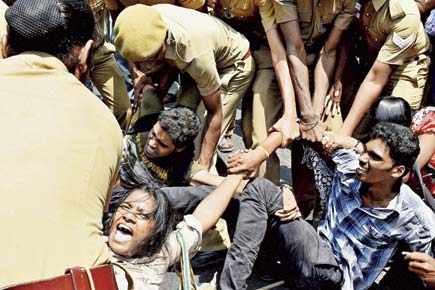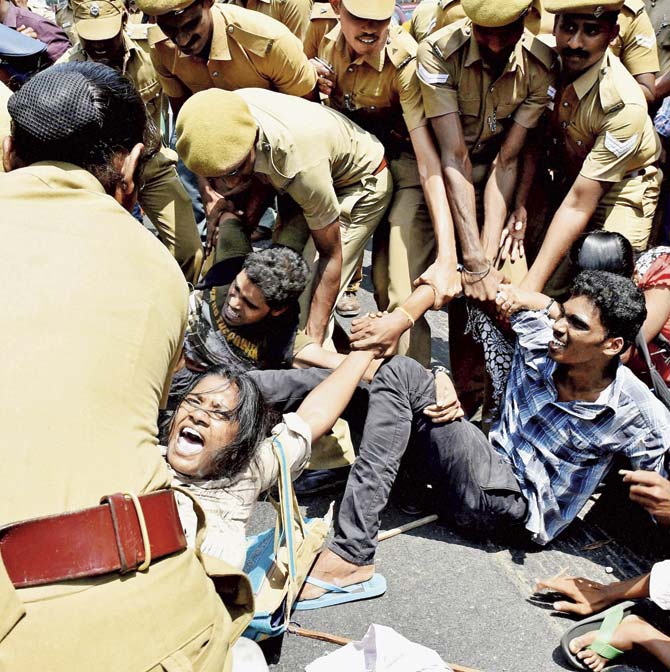Political activism in campuses cannot be completely or even effectively stopped in functional democracies

 Political activism in campuses cannot be completely or even effectively stopped in functional democracies. Ideally student politics should neither be controlled nor banned in democracies like India. They foster free thought, ideas and perspectives from students of diverse backgrounds.
Political activism in campuses cannot be completely or even effectively stopped in functional democracies. Ideally student politics should neither be controlled nor banned in democracies like India. They foster free thought, ideas and perspectives from students of diverse backgrounds.
Historically, political activism has been around ever since universities have been in existence, whether in Europe, America or Asia and in recent history, in South Africa. Student activism has played a major role in fighting apartheid and racism, ending slavery, challenging bigoted ideas, fighting dictatorships and cruel regimes, promoting equal rights of women, LGBT rights, combatting child labour and a host of other causes. In many instances, these social and political causes received impetus because of assistance from political parties that sometimes have their political axes to grind in supporting certain causes.

Police detain activists from the Democratic Youth Federation of India (DYFI) during a protest against HRD Minister Smriti Irani and IIT-Madras outside the institute campus in Chennai on Saturday. Pic/PTI
The recent ruckus in IIT Madras following the ban on Ambedkar Periyar Student Circle (APSC) has got political parties and social organisations all agitated about curtailment of freedom of expression. On Friday, IIT Madras justified its decision to derecognise the group on the grounds that it had violated the guidelines of the institute.
An anonymous complaint to the HRD ministry of the Central government that the APSC was trying to spread hatred towards the PM by distributing ‘provocative literature’ led the ministry to shoot a letter to the campus. The pamphlet of the study circle reportedly highlights a speech by academician R Vivekananda Gopal in which he said: “The Modi government, while carrying forward its Hindutva agenda, is simultaneously assisting the multinational corporates to loot mother India.” Now on the face of it, there is nothing in this extract of the full speech that isn’t being said day in and day out on TV channels by politicians and political experts in ‘debates’. Students are exposed to strong opinions all the time. If they get influenced and form opinions based on only one side then it is worrying, but if a variety of opinions biased or neutral bombards them, it is healthy, and typical of a democracy.
The amount of restriction to be placed on political activities in colleges is something that everybody agonizes over. And it is a global phenomenon. In some countries student activism is tolerated so long as political parties do not overtly back it. In some countries it is completely banned with cameras installed in classrooms and corridors to check political activism.
In some campuses in Kerala, where disruptive student activism is rampant, colleges are planning to take disciplinary action against college groups or individual students caught on camera damaging property, bullying students to participate in demonstrations, forcing bandhs and cancellation of classes.
Many IITians are dismayed over the recent activities in the Madras campus. The caste and religion angles to the entire controversy, besides the political hue, have made everybody uncomfortable. One view is the elite institutions should be spared from ‘such’ activity simply because their academic standards are very high and they have a reputation to protect. But then what is good for geese is good for gander. If political activism is ‘allowed’ in some campuses they should be ‘allowed’ in all. Or else, every college should evolve its own set of limits, dos and don’ts without interference from central and state governments.
The problem is that political activism in college campuses is difficult to define. By nature it is energetic, controversial, passionate and earnest. Students genuinely believe in the causes they perpetuate and often are used by political parties to attack the government of the day via those causes. For many journalists of my generation, the anti-Mandal agitation of 1990 was where we saw this in full force. What began in the campuses of Delhi took on a fiery momentum and engulfed the VP Singh-led government. Even in the thick of the violent protests, all politicians admitted that no party could fight reservations. Its time and moment had come but the agitation did not give room for reasoned debate.
The student movement in Assam is also a case in point. A six-year movement by the AASU led to the historic Assam accord of 1985. The student movement All Assam Students’ Union (AASU) became the political party the Asom Gana Parishad (AGP) and was successful in forming government twice in the state.
Some of our top leaders today, learned the ropes through student politics in the seventies and eighties. Activism and conventional politics have and will always operate side by side. They will evolve with changes in social structure and culture.
Smita Prakash is Editor, News at Asian News International. You can follow her on Twitter @smitaprakash
 Subscribe today by clicking the link and stay updated with the latest news!" Click here!
Subscribe today by clicking the link and stay updated with the latest news!" Click here!









